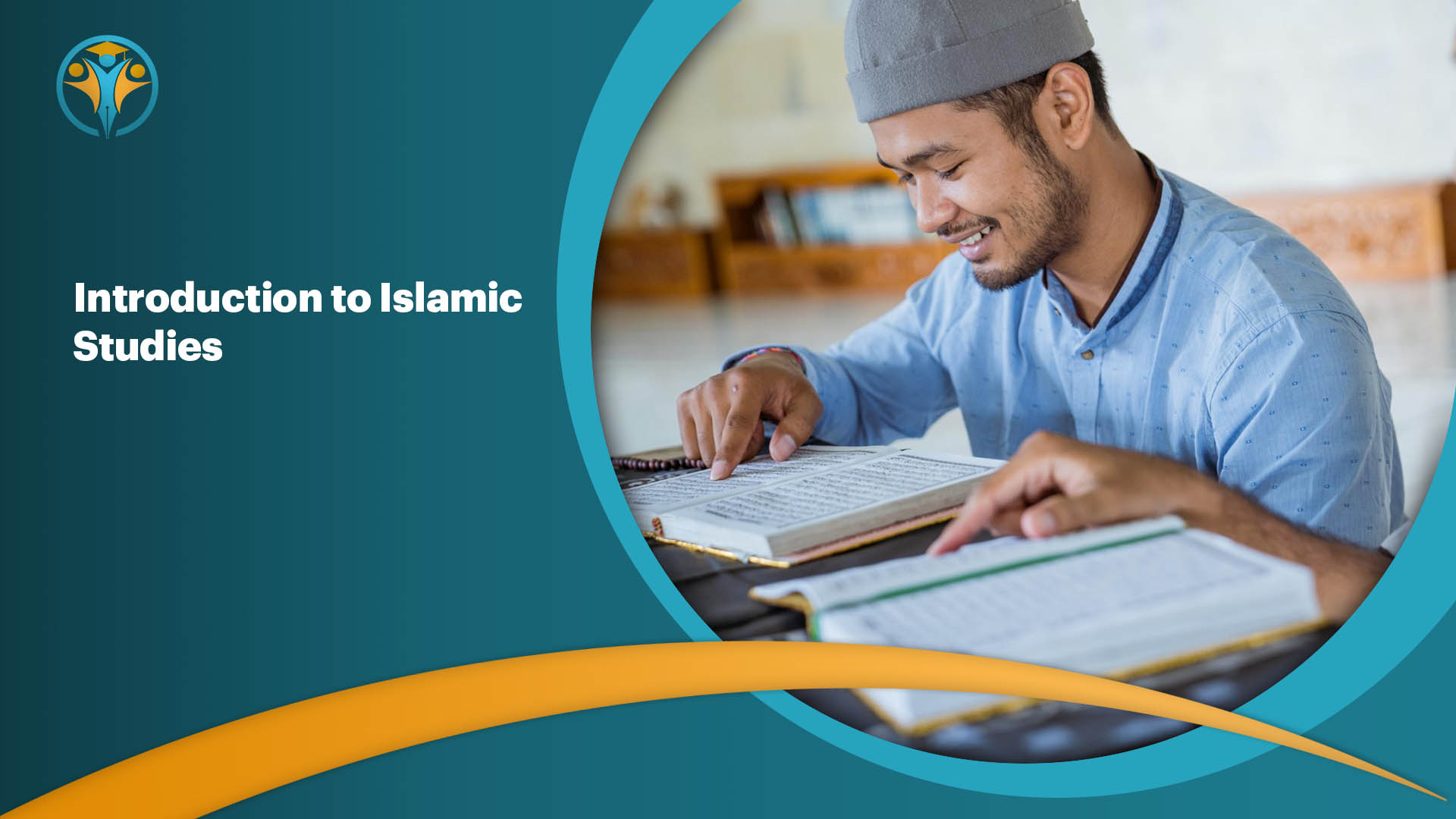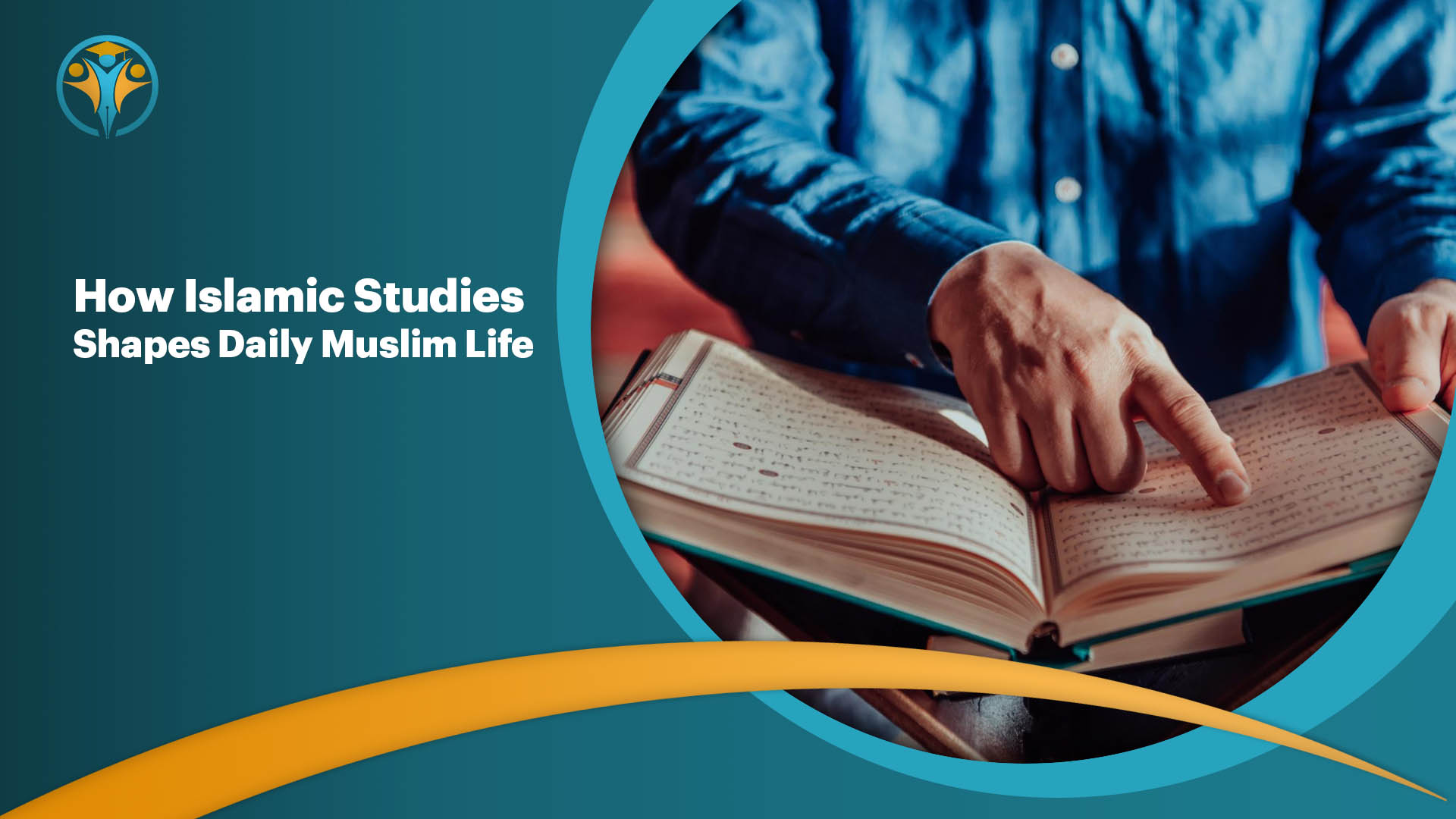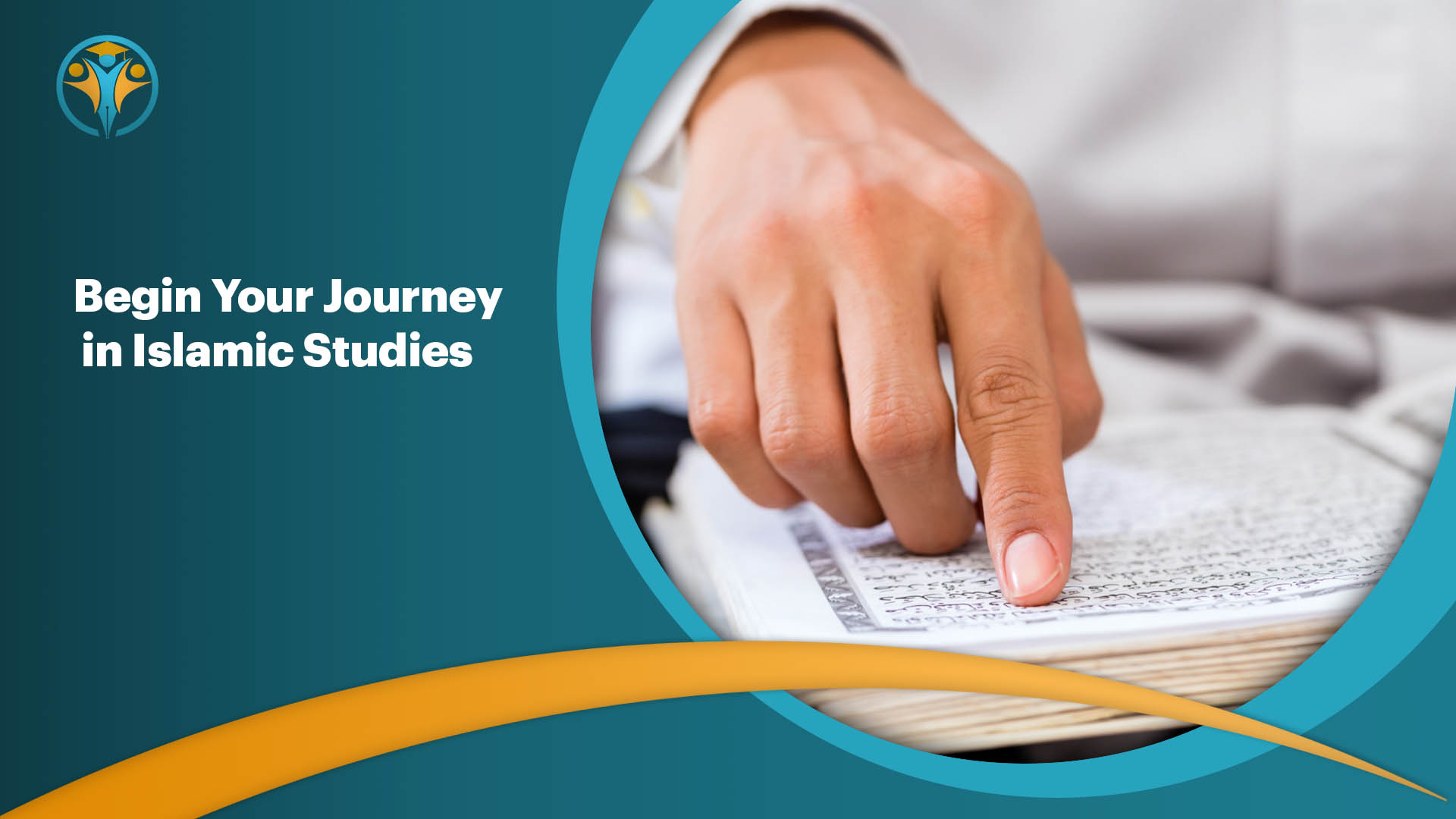
Introduction to Islamic Studies: Deepening Your Faith
Islamic Studies is an academic field dedicated to the systematic study of Islam, aiming to understand its beliefs, practices, and impact on the world.
For Muslims and anyone interested in understanding Islam, Islamic Studies provides a comprehensive overview of the Qur’an, Hadith, Seerah, Aqidah (faith), Fiqh (Islamic law), and other branches of knowledge that shape the religion.
Whether studied through online courses or in dedicated programs like the leading platform, Super Muslim Academy.
Islamic Studies introduces students to the intellectual, cultural, legal, and spiritual traditions of Islam.
Structured Islamic education provides the clarity and depth needed to strengthen one’s faith.
This article explores the importance of Islamic Studies, the core subjects it covers, and the benefits it brings to Muslims of all ages.
Also, how Islamic Studies deepens your connection with Islam and builds a foundation for lifelong learning.

Enjoy the gift of faith and knowledge, enroll in Islamic Studies for all ages today! With engaging lessons in Qur’an, values, and character-building, this programme nurtures love for Islam from an early age. Start your journey now and help them grow into confident, practicing Muslims.
What Is Islamic Studies?
Islamic Studies is an interdisciplinary academic field that introduces students to the religion, history, law, theology, literature, and culture of Islam.
It combines classical knowledge with modern perspectives, offering a balanced overview of both traditional Islamic sciences and contemporary issues.
Islamic Studies encompasses a broad range of areas, including the study of the Quran, Hadith, Islamic law (Fiqh), history, culture, and its influence on societies.
The field typically includes subjects such as:
- Qur’an and Tafseer (exegesis) – A deep study of the Holy Qur’an, its meanings, recitation, tajweed, and interpretation.
- Hadith Studies – Understanding the sayings of Prophet Muhammad ﷺ, their authenticity, and their application in Muslim life.
- Seerah (Prophet’s biography) – A study of the life, character, and mission of the Prophet, which guides Muslims in all aspects of life.
- Fiqh (Islamic law) – An exploration of legal rulings, jurisprudence, and the principles of Shariah.
- Aqidah (Islamic theology) – The foundations of belief, including the pillars of faith, attributes of Allah, and discussions on aqeedah and usool.
- Islamic History and Civilization – An overview of the historical development of Islam across different regions, cultures, and political systems.
In universities, students may pursue a bachelor’s degree in Islamic Studies, which includes structured coursework and specific requirements across subjects like law, philosophy, arts, literature, and comparative religion.
Online platform Super Muslim Academy also provides introductory and advanced courses designed for different levels, from kids to adults.
Ultimately, Islamic Studies introduces learners to the richness of Islam’s intellectual tradition while also providing practical guidance for daily life and faith practice.

The Importance of Islamic Studies in Strengthening Faith
Islamic Studies plays a profound role in nurturing and deepening one’s faith.
For Muslims, learning about the Qur’an, Hadith, Seerah, and Islamic law is not just an academic pursuit—it is an act of worship and a way to draw closer to Allah.
The importance of Islamic Studies can be seen in several areas:
- Providing a Clear Understanding of Beliefs – Islamic Studies ensures that Muslims build their faith (iman) upon sound knowledge of aqidah, the pillars of Islam, and the foundations of religion.
- Countering Misconceptions – With so many cultural and political misunderstandings about Islam, structured Islamic education provides clarity and confidence when addressing misconceptions.
- Strengthening Communities – When Muslims gain knowledge, they strengthen their families, schools, and societies with ethical values and sound guidance.
- Offering Lifelong Guidance – From childhood to adulthood, Islamic Studies helps students navigate religious, social, cultural, and personal issues with wisdom rooted in Islamic tradition.
By studying Islam in a structured way through Islamic Studies programs or Quran classes online, students develop not just academic skills but also spiritual insight that strengthens their connection with Allah.
How Islamic Studies Strengthens Faith
Faith (iman) is strengthened by knowledge, practice, and reflection.
Islamic Studies combines these three elements, helping Muslims develop a deeper sense of purpose and devotion.
- Through Knowledge – Students learn about the Qur’an, Hadith, and Fiqh, gaining intellectual tools to understand Islam’s teachings in depth.
- Through Practice – Studying Islamic law and ethics guides Muslims in daily life, from prayer and fasting to family matters and community roles.
- Through Reflection – Subjects like Seerah, philosophy, and Islamic art encourage reflection on Islam’s cultural richness and spiritual depth.
Learning Qur’anic tafseer enables a student to connect with the holy verses at a deeper level, while studying Hadith allows one to appreciate the Prophet’s (PBUH) teachings in real-life contexts.
This structured approach provides a solid foundation of belief, enabling Muslims to live with conviction, humility, and gratitude.
Core Subjects Covered in Islamic Studies
Islamic Studies is comprehensive, covering a wide range of religious, cultural, and intellectual fields.
A typical program, whether at university or in an online academy, will include courses designed to provide both basics and advanced knowledge.
Here are the core subjects most often covered:
- Qur’an Studies – Recitation, tajweed, tafseer, and understanding Qur’anic sciences.
- Hadith and Sunnah – Principles of Hadith, collections, and applications in fiqh and daily life.
- Aqidah (Theology) – Study of beliefs, divine attributes, and usool.
- Fiqh and Islamic Law – Covering personal, social, and legal rulings.
- Seerah (Biography of the Prophet ﷺ) – Exploring the Prophet’s life and mission.
- Islamic History – The emergence and spread of Islam, classical periods, and modern developments.
- Philosophy and Comparative Religion – How Islam relates to other religions and global philosophies.
- Arabic Language – Learning Arabic to access the Qur’an and Arabic classical texts.
- Islamic Arts and Literature – Including poetry, calligraphy, and cultural traditions.
- Ethics and Society – How Islam addresses moral, social, and political issues.
Each subject provides valuable insights into Islam’s profound tradition, enabling students to develop academic skills, critical thinking, and religious appreciation.

How Islamic Studies Shapes Daily Muslim Life
Islamic Studies is not just about academic learning—it has a direct impact on daily life.
By studying Islam’s teachings, Muslims gain the skills and understanding needed to live according to Islamic values.
For example:
- Qur’an recitation with tajweed improves one’s prayer and worship.
- Fiqh studies provide guidance on daily matters such as halal food, business ethics, and family relations.
- Ethics and aqidah strengthen a Muslim’s resilience in facing modern challenges.
- History and culture create a sense of appreciation for Islam’s global and diverse contributions.
Whether in the East or West, Islamic Studies enables Muslims to live confidently with their faith while contributing positively to society.
Benefits of Pursuing Islamic Studies for All Ages
Islamic Studies offers benefits for kids, adults, students, and entire communities.
Regardless of age or level, every Muslim can gain from structured Islamic education.
- Islamic Studies for Kids – Provides a foundation of aqidah, Qur’an recitation, and basics of Islam in a structured yet engaging way.
- For Adults – Offers opportunities to deepen knowledge, strengthen practice, and guide families.
- For Students – Builds academic skills, provides certificate or degree programs, and opens pathways to careers in teaching, law, and research.
- Islamic Studies for Beginners – introduces fundamental Islamic concepts, beliefs, and practices. It typically covers core topics like the Five Pillars of Islam, the Quran, the life of Prophet Muhammad (PBUH), and basic Islamic jurisprudence (Fiqh). Learning resources include the Quran, Hadith, online courses, and reputable books.
Platforms like Super Muslim Academy provide online courses designed for all levels, enabling brothers and sisters worldwide to learn Islam online at their own pace.
With structured programs, faculty support, and flexible schedules, Muslims can gain knowledge that deepens faith while balancing busy modern lives.

How to Begin Your Journey in Islamic Studies
Starting your journey in Islamic Studies requires clarity of purpose and the right resources.
Here are some steps to begin:
- Define Your Goal – Do you want a basic introduction to Islam, a certificate course, or a bachelor’s degree in Islamic Studies?
- Choose a Learning Platform – Options include universities, local Islamic schools, and online academies like Super Muslim Academy, which offers comprehensive, structured courses.
- Start with the Basics – Begin with introductory subjects such as Qur’an recitation, Hadith overview, and Aqidah foundations.
- Develop Skills in Arabic – Learning Arabic enables direct access to the Qur’an and Hadith.
- Engage with Community – Join study groups, online forums, or mosque classes to deepen learning through discussion.
- Stay Consistent – Dedicate specific hours per week to structured learning, practice, and reflection.
- Apply What You Learn – True Islamic Studies is not just academic—it’s about applying knowledge in daily life.
By following these steps, Muslims can build a solid foundation in Islamic education, develop a comprehensive understanding of Islam, and strengthen their faith for a lifetime of learning and worship.
Learn Islamic Studies for Kids
Learn Islamic Studies for Kids is a foundational program that introduces young learners to Islam’s main teachings simply and engagingly.
This level focuses on the basics of Quran recitation, Quranic stories, and Islamic values suitable for school-aged children.
The curriculum is carefully structured as a series of classes that use English and Arabic instruction, coupled with interactive material designed to build communication skills and love for the Qur’an.
Islamic Studies for kids instead considers what is most relevant to their daily life.
Each class aims to provide a clear description of faith, articulated through stories, activities, and values, helping both boys and girls grow with an appreciation for Islam’s ulum and its role in human society.
Introduce your child to Islam’s values with engaging Islamic Studies for kids.
This structured programme focuses on Qur’an, faith, and character-building through fun lessons, interactive activities, and age-appropriate material to help kids grow with strong values and a love for Islam.
In Conclusion, Islamic Studies is both an academic pursuit and a spiritual journey.
It introduces Muslims to the rich history, theology, culture, law, and ethics of Islam, while also strengthening daily faith and practice.
Through structured programs, courses, and online platforms like Super Muslim Academy, Muslims of all ages can gain profound knowledge that deepens their connection with Allah.
In today, where challenges and misconceptions about Islam are widespread, Islamic Studies provides clarity, purpose, and guidance.
Whether you are a beginner looking for an introduction or a student pursuing a degree, the field offers a comprehensive pathway to knowledge, intellectual growth, and spiritual fulfillment.
Now is the best time to begin your journey in Islamic Studies—an opportunity to deepen your faith, strengthen your identity, and contribute positively to the world around you.



